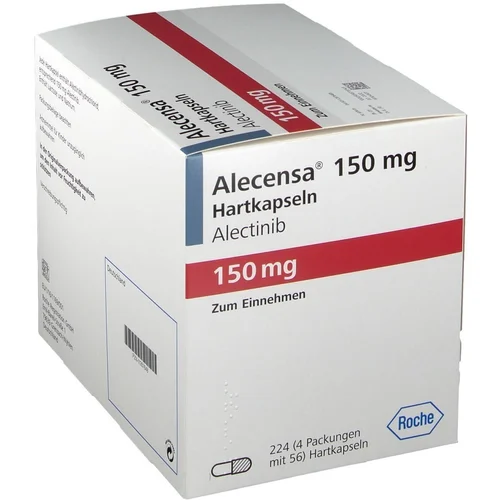Alcensa 150 is a prescription medication used to treat a type of lung cancer called anaplastic lymphoma kinase (ALK)-positive non-small cell lung cancer. It is a kinase inhibitor that works by targeting the ALK protein and blocking its activity, which can help to slow down the growth of cancer cells.
Composition:
- Alectinib 150mg
Mechanism of Action:
Alectinib works by:
- Inhibiting the activity of the ALK protein, which is a key player in the growth and spread of cancer cells
- Blocking the signaling pathways that promote cancer cell growth and survival
- Reducing the production of proteins that contribute to cancer cell growth and survival
Indications:
Alcensa 150 is approved for the treatment of:
- ALK-positive non-small cell lung cancer (NSCLC) in patients who have progressed on or are intolerant to crizotinib
- ALK-positive NSCLC in patients who have not received prior chemotherapy
Dosage:
The recommended dosage of Alcensa 150 is:
- 150mg administered orally once daily
- The recommended duration of treatment is until disease progression or unacceptable toxicity occurs
Side Effects:
Common side effects of Alcensa 150 include:
- Fatigue
- Constipation
- Nausea and vomiting
- Diarrhea
- Abdominal pain
- Headache
- Dizziness
- Increased liver enzymes
- Increased risk of infections
- Increased risk of bleeding
Recommendation:
Alcensa 150 is recommended for patients with ALK-positive NSCLC who have not responded to other treatments or who have progressed on or are intolerant to crizotinib.
Important Note:
- Patients taking Alcensa 150 should be closely monitored for signs of liver damage or liver failure.
- Patients taking Alcensa 150 should avoid taking medications that may interact with it, such as warfarin or phenytoin.
- Pregnant or breastfeeding women should not use Alcensa 150, as it may harm the fetus or infant.
- Regular follow-up appointments with your healthcare provider are necessary to monitor the effectiveness of Alcensa 150 and to detect any potential side effects or complications.
Special Precautions:
- Patients with a history of liver disease or liver dysfunction should be closely monitored while taking Alcensa 150.
- Patients with a history of bleeding disorders should be closely monitored while taking Alcensa 150.
Contraindications:
- Patients who are allergic to alectinib or any other component of Alcensa 150 should not use it.
- Patients who are pregnant or breastfeeding should not use Alcensa 150.
- Patients with severe liver disease or liver failure should not use Alcensa 150.
Warnings:
- Alcensa 150 can cause severe liver damage or liver failure, especially in patients with a history of liver disease.
- Patients with a history of liver disease or liver dysfunction should be closely monitored while taking Alcensa 150.
- Patients should report any changes in their liver function or symptoms of liver damage to their healthcare provider immediately.




Reviews
There are no reviews yet.